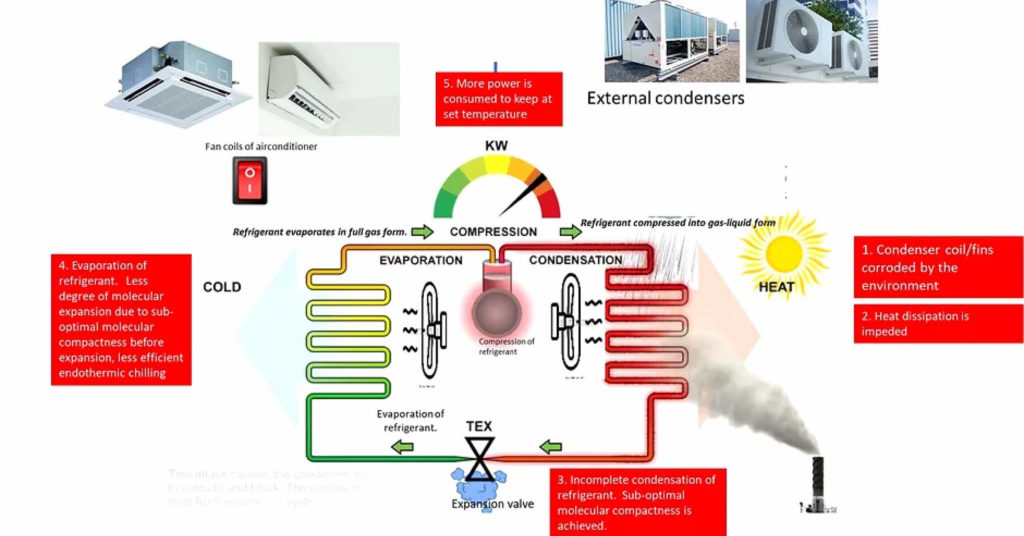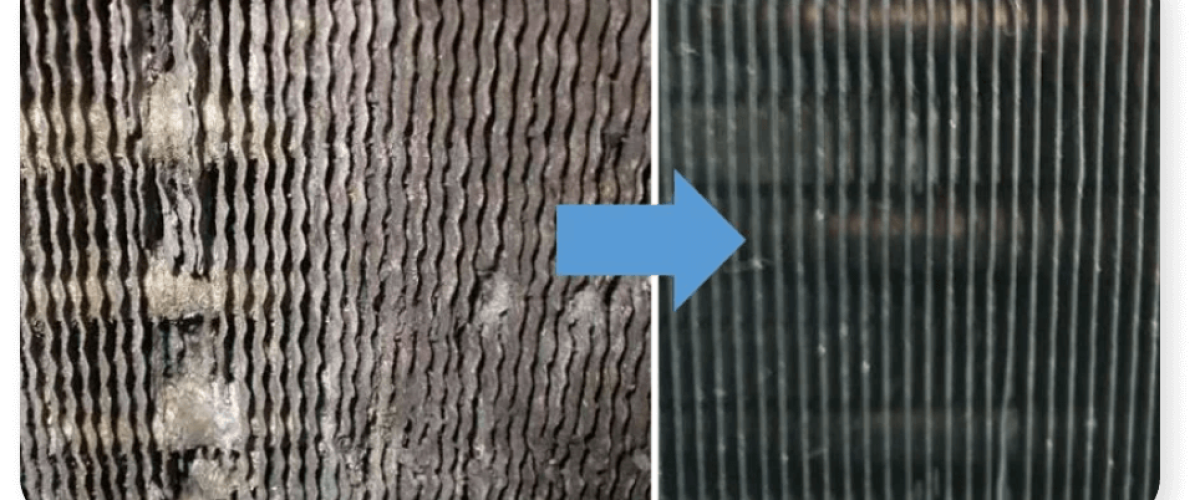When you relax in a cool, air-conditioned bedroom or work comfortably in a climate-controlled office, the last thing on your mind is the hidden cost running through your air-conditioning system — wasted electricity.
Most people trust that their air-conditioner, especially when new, is running efficiently.
In its ideal state, the refrigeration cycle moves refrigerant from the compressor to the outdoor coil, dissipates heat, passes through the expansion valve, and then delivers chilled air through the indoor fan coil — all with minimal energy loss.
But over time, a silent problem can start to rob your system of its efficiency.
The Silent Culprit: Corrosion
One of the most common and least recognized causes of rising electricity costs in air-conditioning systems is corrosion of the condenser’s heat-exchange coil.
Your outdoor condenser unit (or air-cooled chiller) is constantly exposed to the elements. Moisture, pollution, and airborne chemicals can slowly eat away at the delicate aluminum fins and copper tubing.
As corrosion builds, the coil loses its ability to release heat effectively.

Why Corrosion Wastes Electricity
Here’s what happens when condenser coils corrode:
- Heat dissipation is reduced — the refrigerant cannot release heat efficiently.
- Refrigerant stays partially gaseous — instead of fully condensing into liquid form.
- Cooling efficiency drops — the expansion valve receives refrigerant in a less-than-ideal state.
- The compressor works harder — cycling more often to maintain the set temperature.
- Energy bills creep upward — often without the occupant noticing.
This process is gradual and often invisible until the costs become significant.
The Real Cost
Fewer than 1% of building occupants connect higher utility bills to coil corrosion.
By the time the problem is obvious, efficiency losses are hard to reverse. In severe cases, the coil must be completely replaced, which is expensive and disruptive.
Prevention Is Better Than Repair
Once corrosion begins, restoring full efficiency is challenging. That’s why prevention should start from day one:
- Protective coatings can shield coils from environmental damage.
- Regular maintenance keeps contaminants from accelerating corrosion.
- Early intervention can extend coil life and maintain peak efficiency.
Addressing corrosion early saves electricity, reduces repair costs, and ensures your system delivers the comfort you paid for — without hidden losses.
Take Action Today
Don’t wait for corrosion to damage your air-conditioning system and drive up your bills.
Contact our team today for a professional inspection and corrosion prevention service — and keep your system running at peak efficiency.
